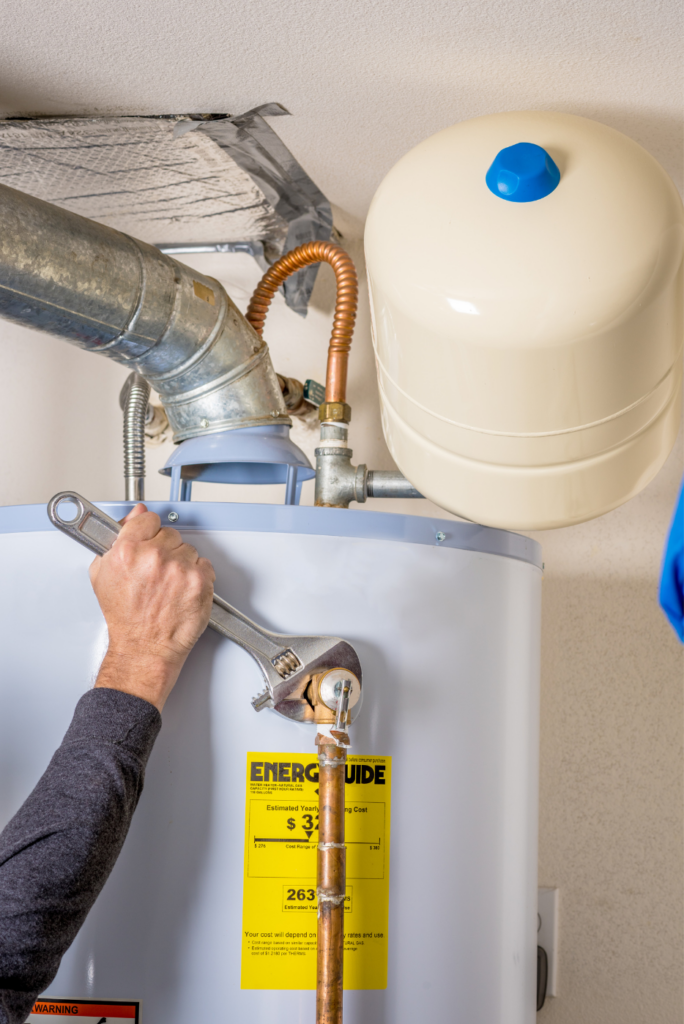Usual Water Heater Problems
Usual Water Heater Problems
Blog Article
They are making a number of great pointers relating to Common Problems with Your Home Water Heater as a whole in the content directly below.

Picture starting your day without your regular warm shower. That currently establishes a poor tone for the remainder of your day.
Every house requires a reliable hot water heater, however just a few recognize how to manage one. One simple method to maintain your water heater in top shape is to check for faults on a regular basis and also repair them as quickly as they show up.
Bear in mind to turn off your water heater before sniffing around for faults. These are the water heater faults you are probably to experience.
Water also hot or as well cold
Every water heater has a thermostat that determines exactly how warm the water gets. If the water entering your residence is too hot in spite of establishing a convenient maximum temperature level, your thermostat could be faulty.
On the other hand, too cold water may be because of a fallen short thermostat, a busted circuit, or improper gas flow. For example, if you use a gas water heater with a broken pilot light, you would obtain cold water, even if the thermostat remains in excellent problem. For electrical heating units, a blown fuse may be the offender.
Insufficient hot water
Hot water heater can be found in lots of sizes, relying on your warm water needs. If you run out of hot water before everyone has had a bath, your water heater is too small for your family size. You must consider installing a larger water heater storage tank or going with a tankless hot water heater, which occupies much less area and is more long lasting.
Unusual noises
There go to least 5 sort of noises you can speak with a hot water heater, however one of the most typical interpretation is that it's time for the hot water heater to retire.
To start with, you need to recognize with the typical sounds a hot water heater makes. An electric heating unit might sound various from a gas-powered one.
Standing out or banging audios generally suggest there is a piece of debris in your containers, and also it's time to cleanse it out. On the other hand, whistling or hissing noises may simply be your valves allowing some stress off.
Water leaks
Leaks can originate from pipes, water connections, shutoffs, or in the worst-case situation, the storage tank itself. Over time, water will certainly rust the tank, and also discover its way out. If this takes place, you need to change your water heater as soon as possible.
Nonetheless, before your adjustment your entire storage tank, be sure that all pipes remain in location which each valve works flawlessly. If you still need assistance identifying a leak, call your plumber.
Rust-colored water
Rust-colored water suggests one of your water heater parts is corroded. It could be the anode pole, or the container itself. Your plumber will certainly have the ability to determine which it is.
Warm water
Despite how high you established the thermostat, you will not obtain any warm water out of a heating system well past its prime. A hot water heater's efficiency might decrease with time.
You will likewise obtain lukewarm water if your pipes have a cross link. This suggests that when you switch on a faucet, warm water from the heating unit flows in along with regular, cold water. A cross connection is very easy to place. If your warm water faucets still pursue closing the water heater valves, you have a cross link.
Discoloured Water
Rust is a significant source of filthy or discoloured water. Corrosion within the water container or a stopping working anode pole might cause this discolouration. The anode rod protects the storage tank from rusting on the inside as well as should be inspected annual. Without a rod or an effectively working anode pole, the warm water rapidly wears away inside the tank. Get in touch with a specialist water heater service technician to establish if replacing the anode rod will take care of the trouble; otherwise, change your hot water heater.
Conclusion
Ideally, your water heater can last 10 years before you need a change. However, after the 10-year mark, you may experience any of these mistakes much more frequently. At this moment, you must include a brand-new water heater to your budget plan.
How To Troubleshoot 3 Common Water Heater Problems in Twin Cities
The Water Heater Is Leaking
A leaky cold water inlet valve A loose pipe fitting A leaky temperature and pressure relief valve A corroded anode rod A cracked tank Turn Off Your Water Heater:
Shut off your gas water heater by turning the gas valve on the unit to the “OFF” position. Shut off your electric water by switching its power off at your electrical panel. Look for a two-pole breaker labeled “water heater” and turn it to the “OFF” position. Move the ball valve connected to the water heater to be perpendicular to the piping at a 90° angle. Look for the Leak:
Depending on whether the water is coming from the tank's top or bottom, you’ll want to look for the leak in different locations.
If the leak comes from the top of the tank, carefully look for water escaping from the cold water inlet valve or loose pipe fittings. Rusted hot and cold water valves can have loose connections with the tank, with water leaking out of them.
https://mspplumbingheatingair.com/blog/how-to-troubleshoot-3-common-water-heater-problems
I'm very fascinated by Water Heaters Problems and I hope you liked the blog posting. Do you know someone else who is fascinated by the niche? Do not hesitate to promote it. Kudos for your time. Come back soon.
For fast relief, call! Report this page